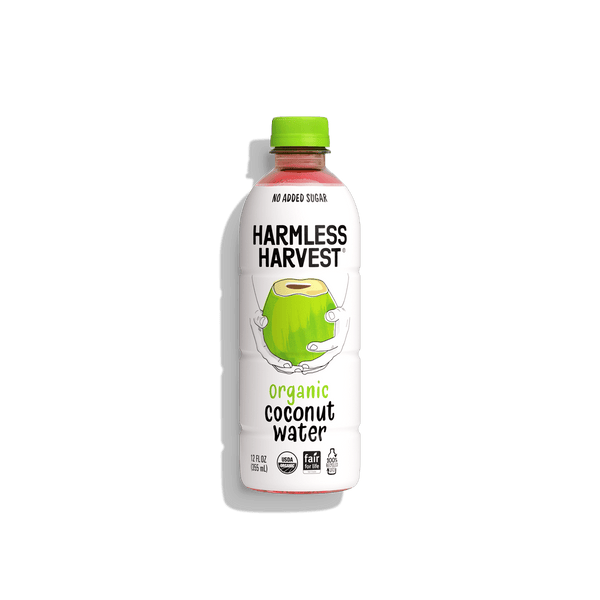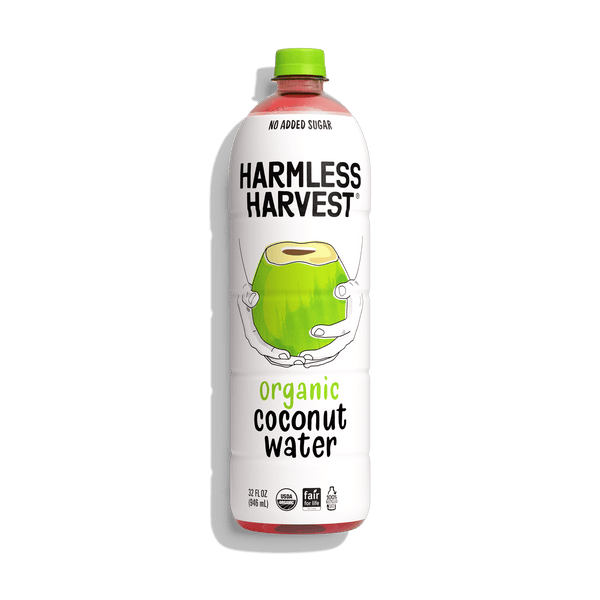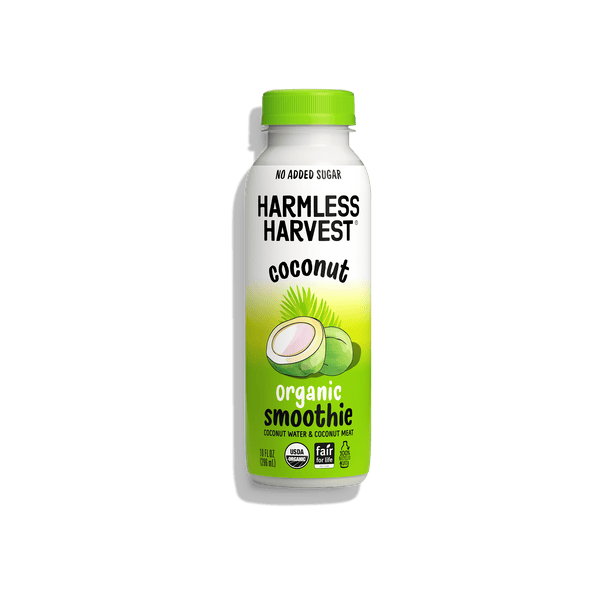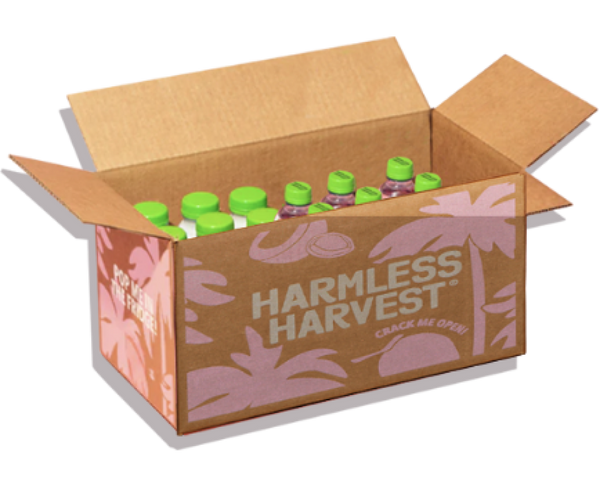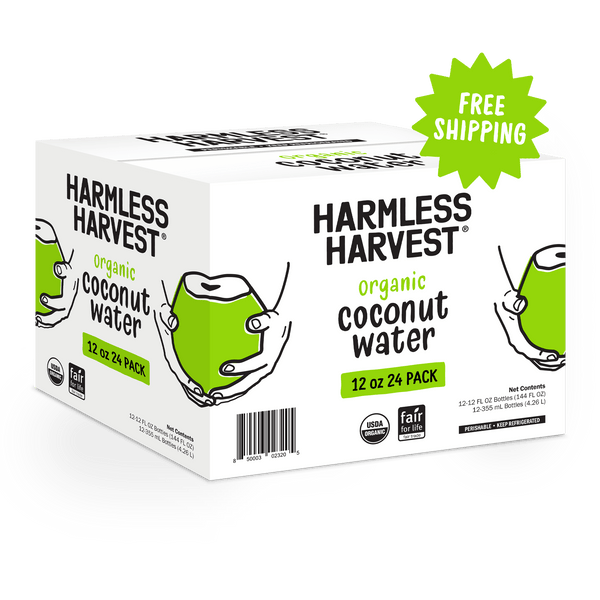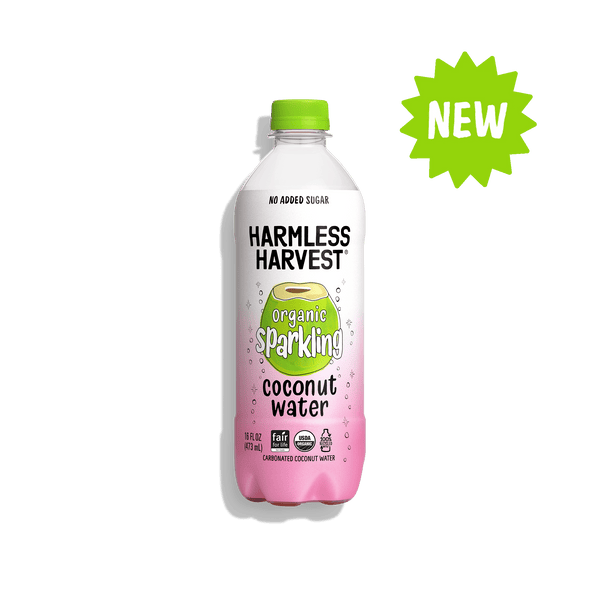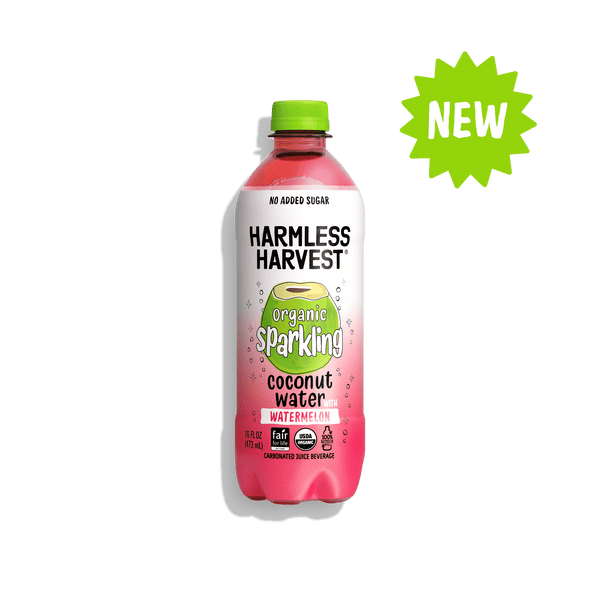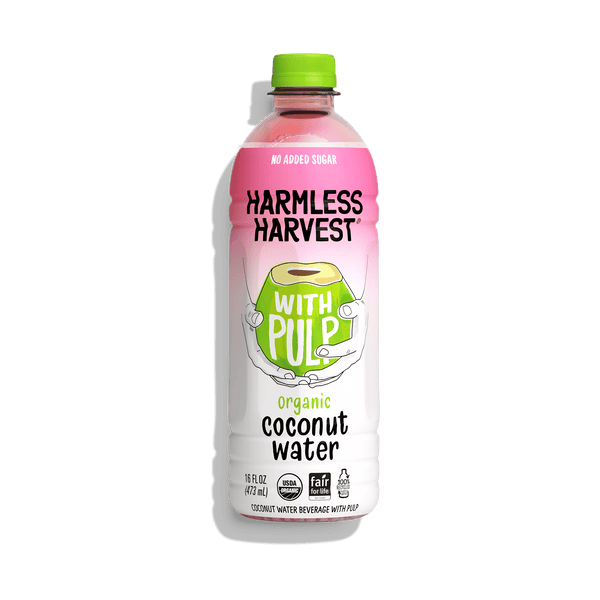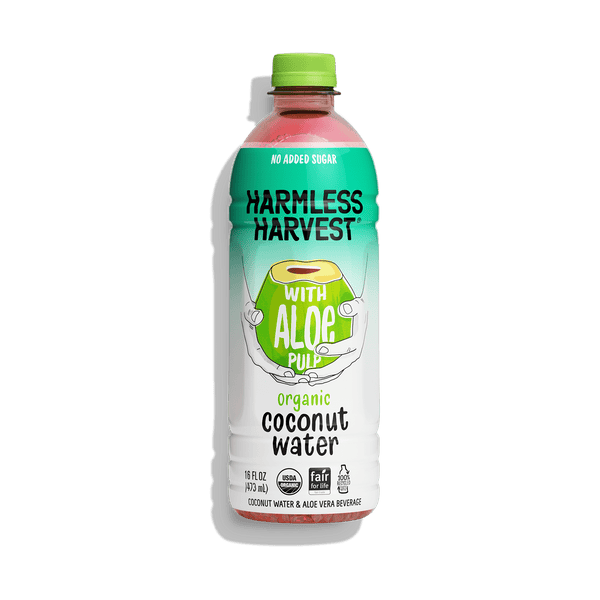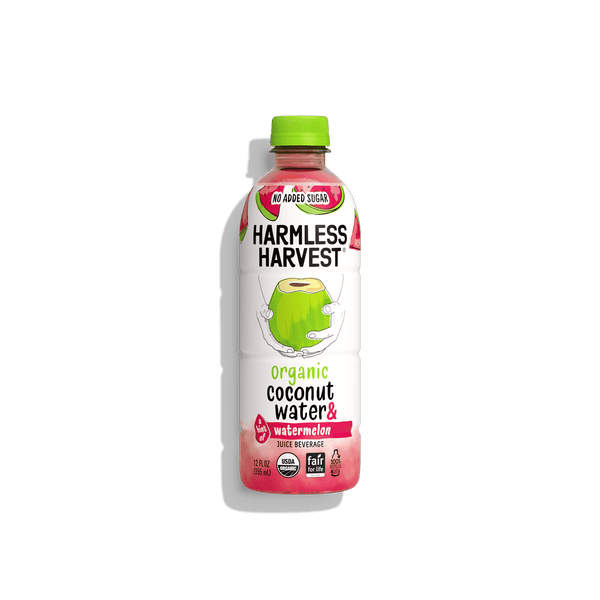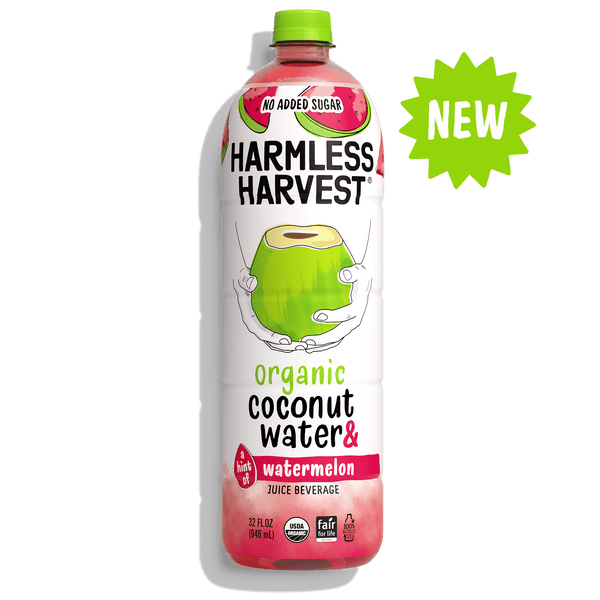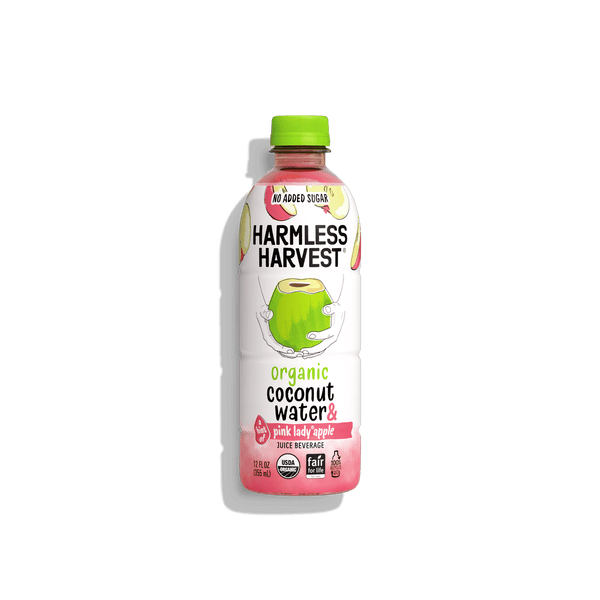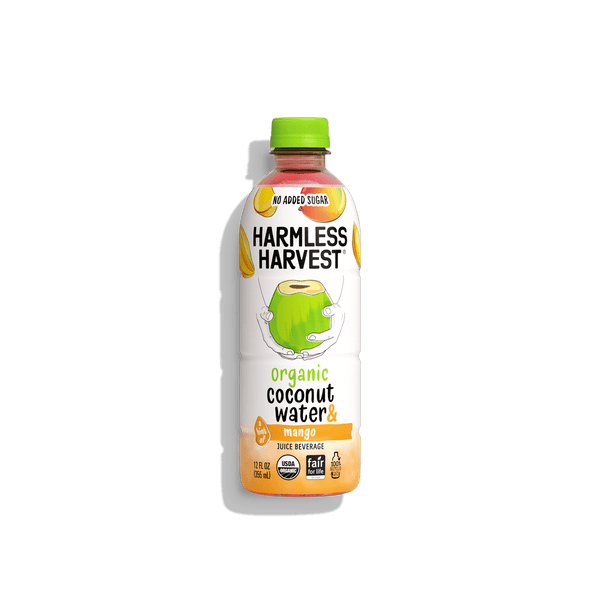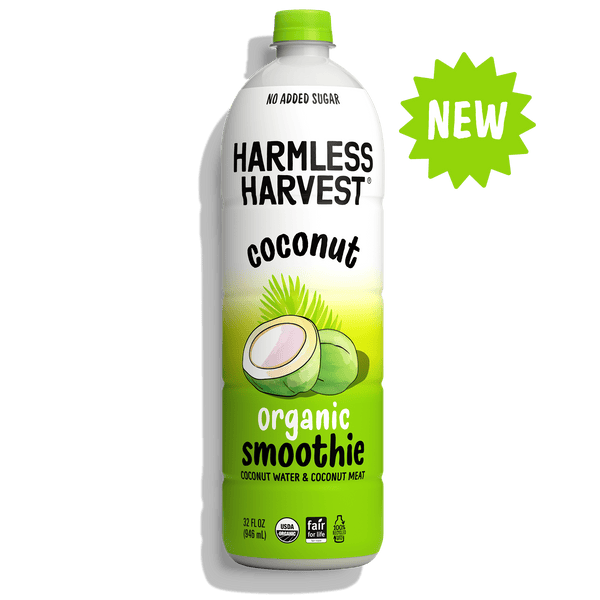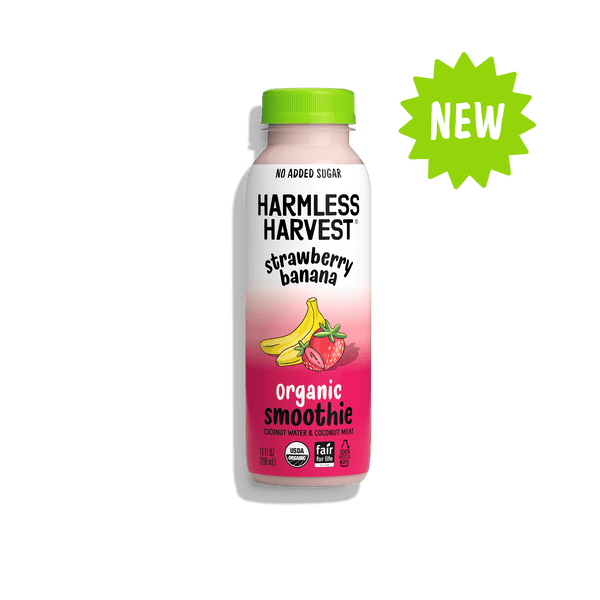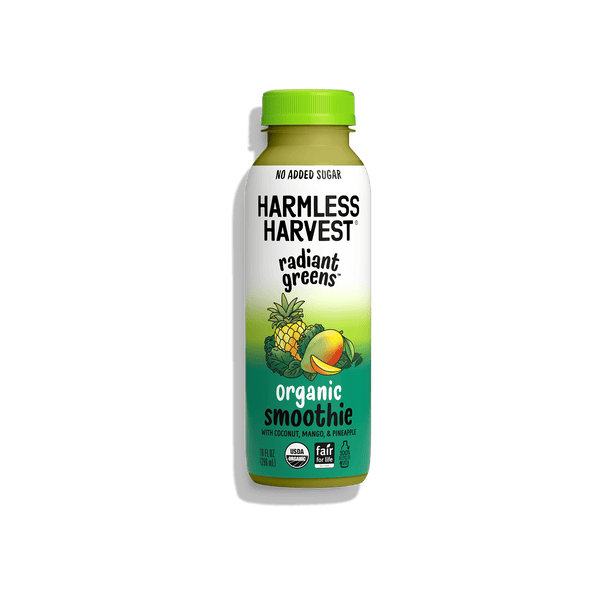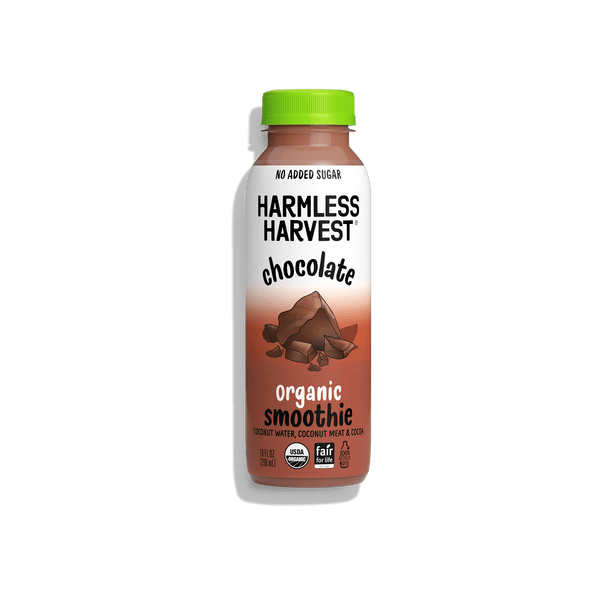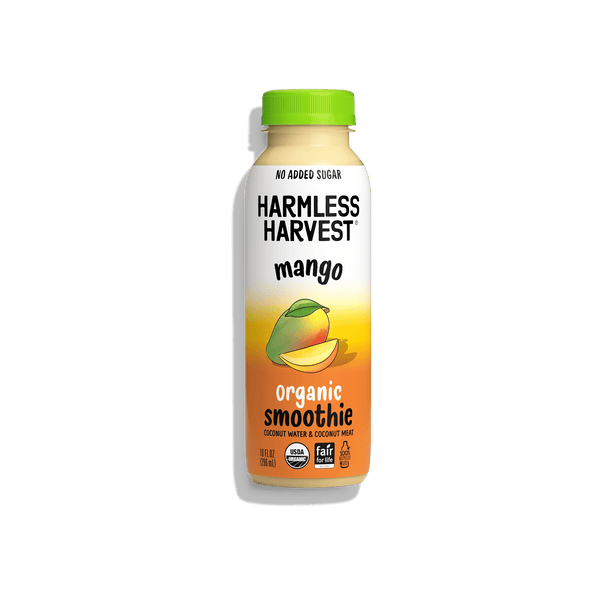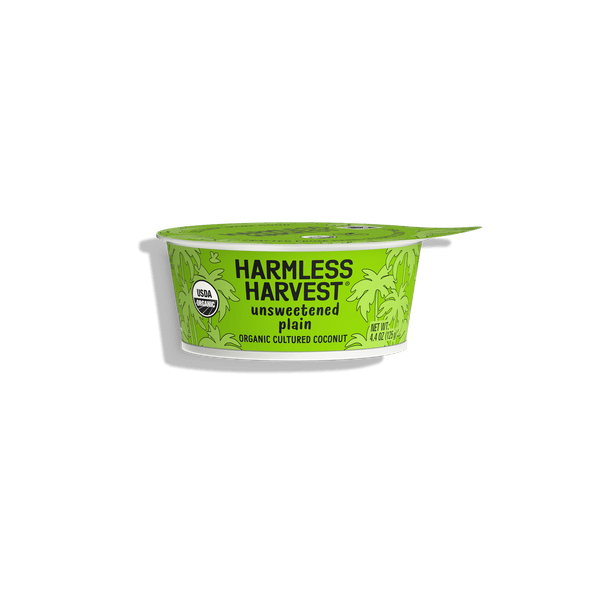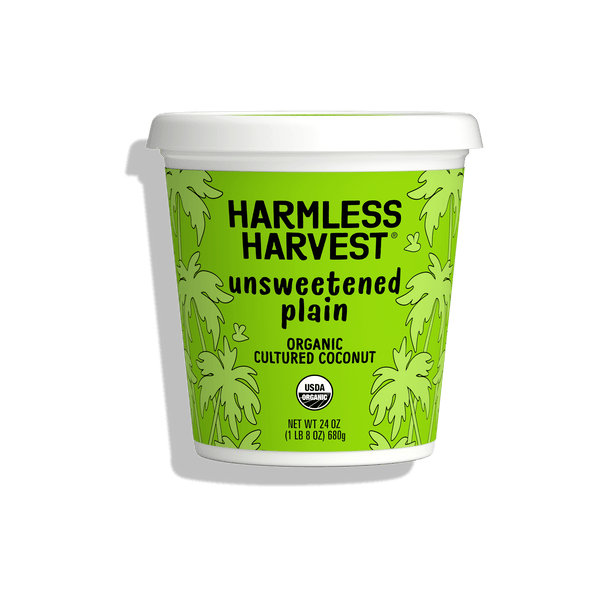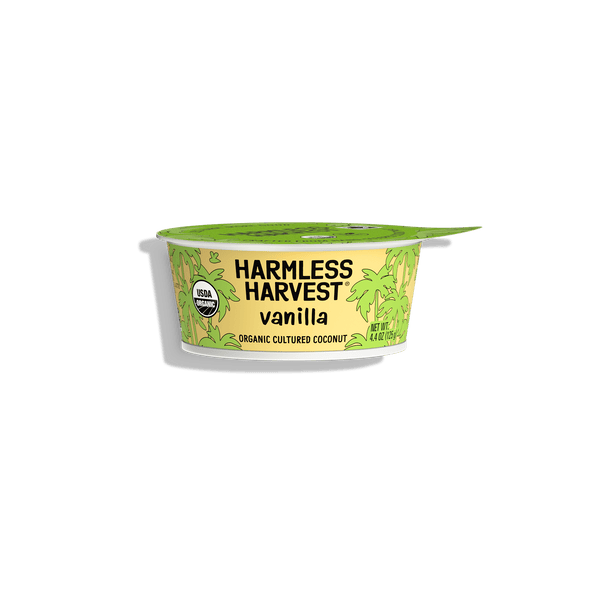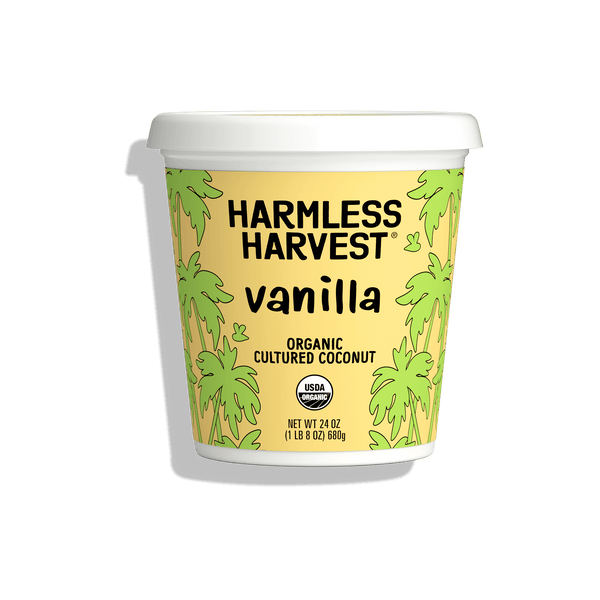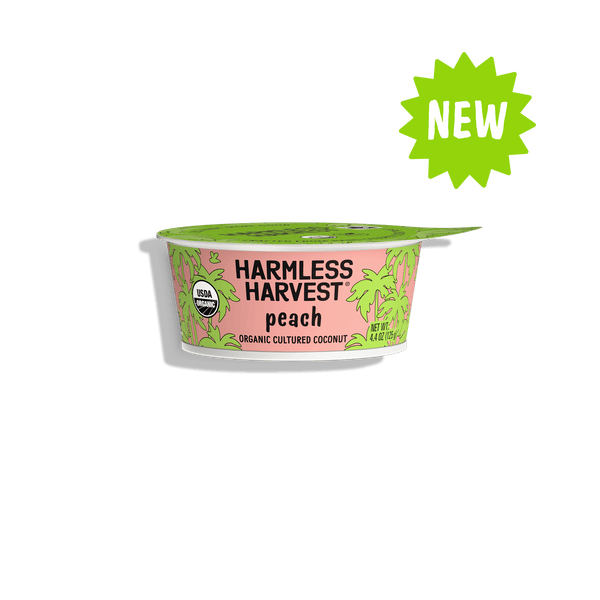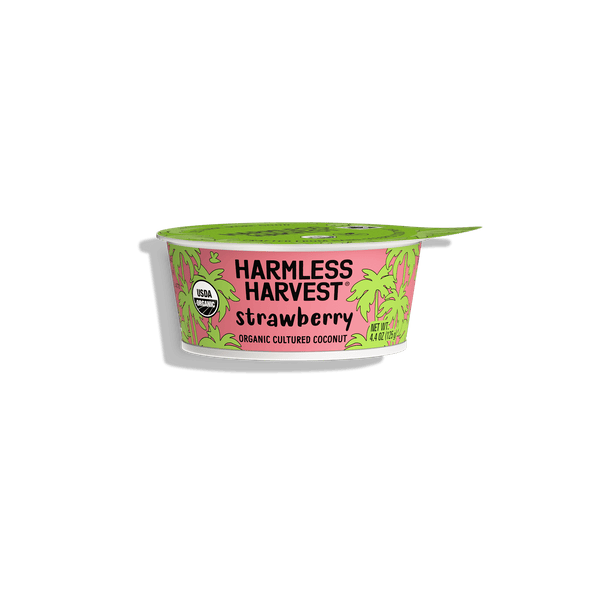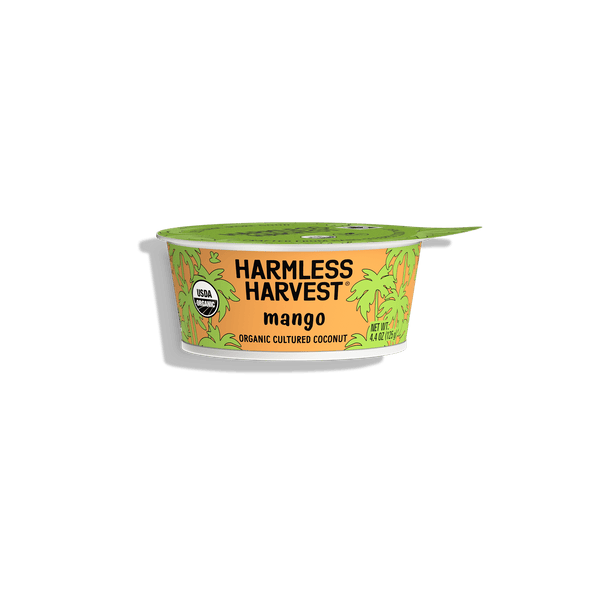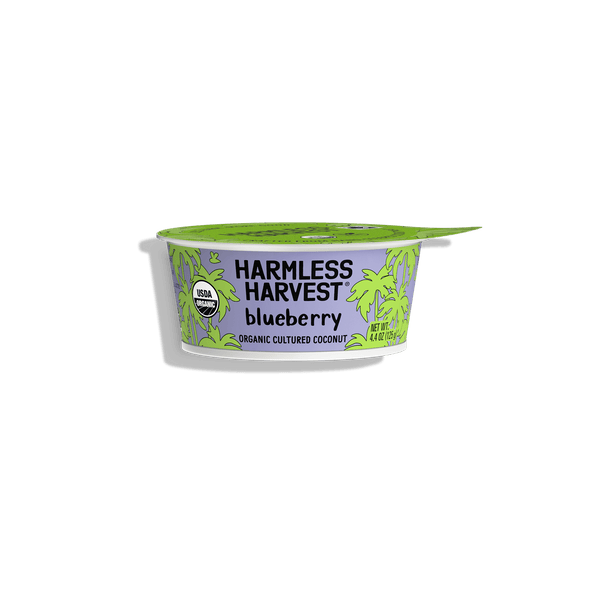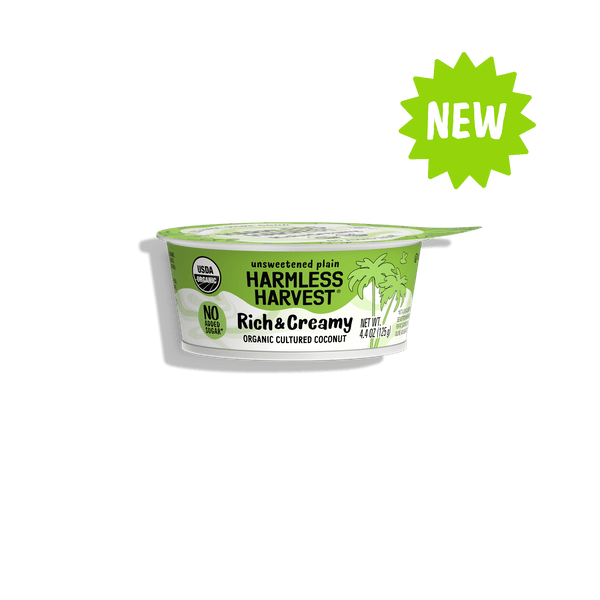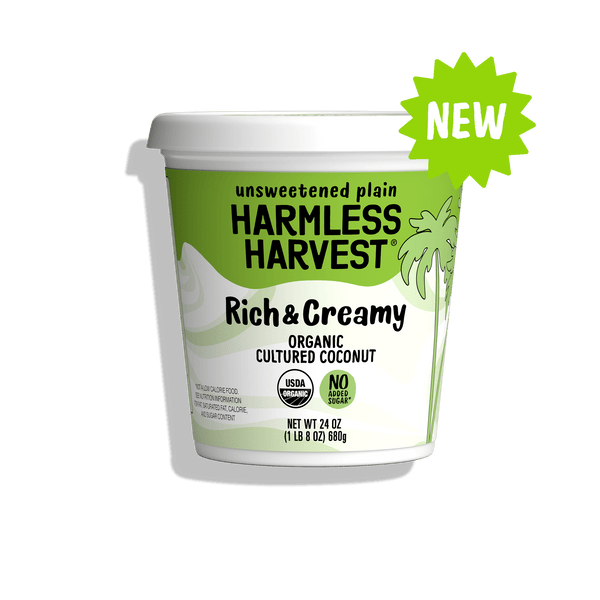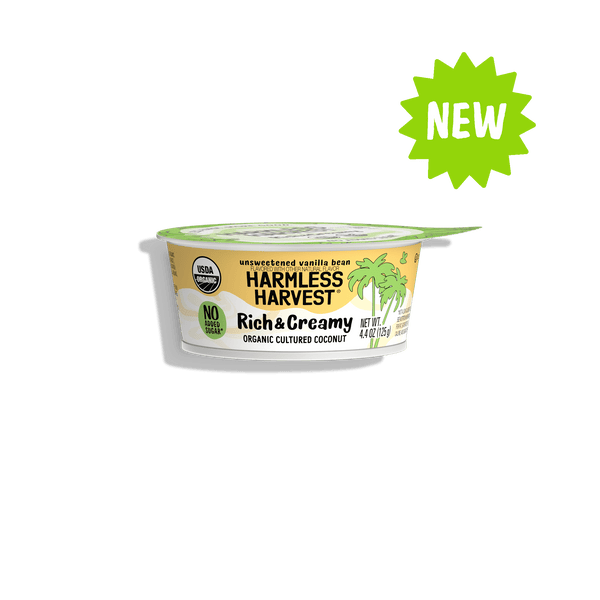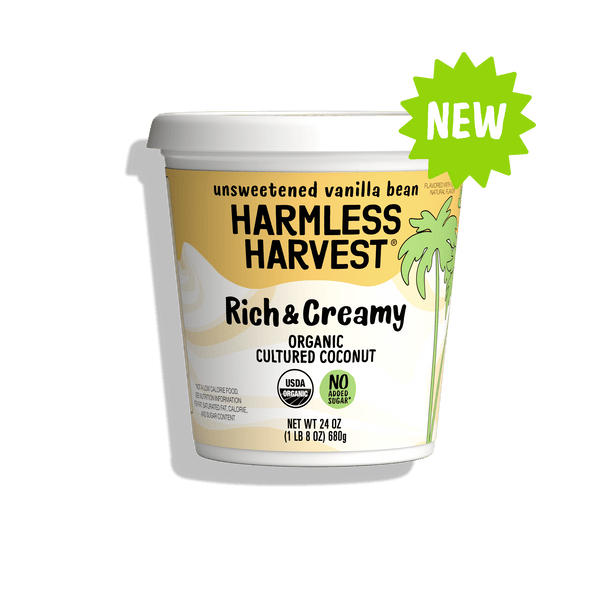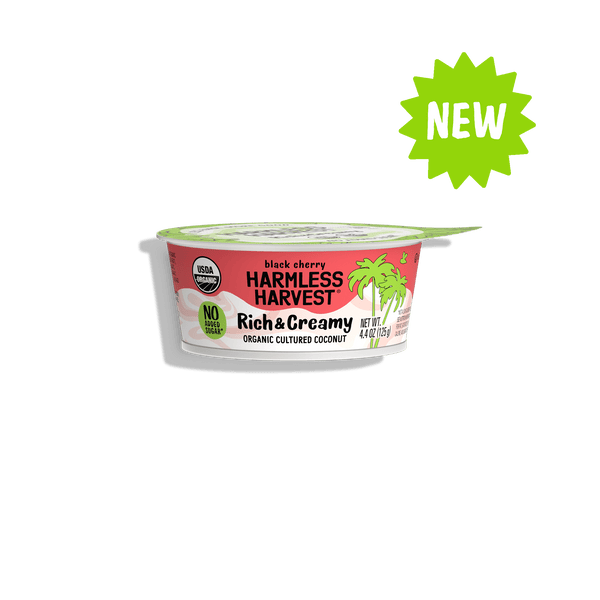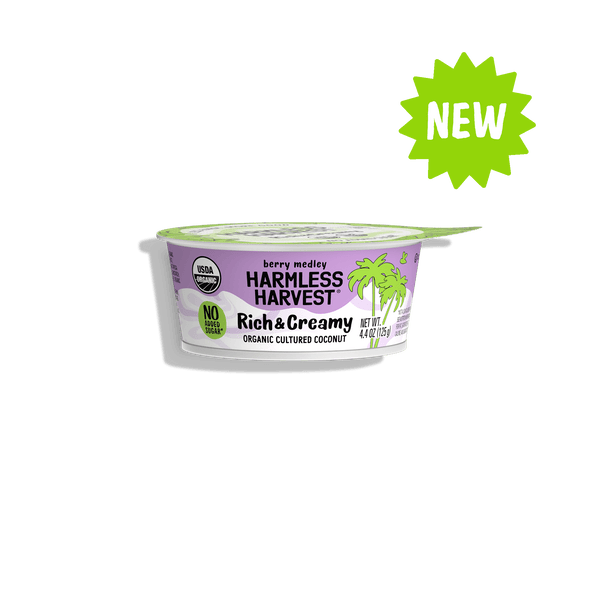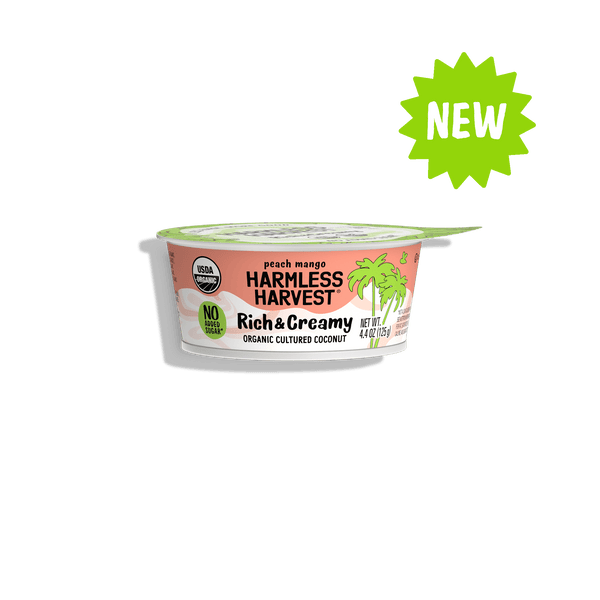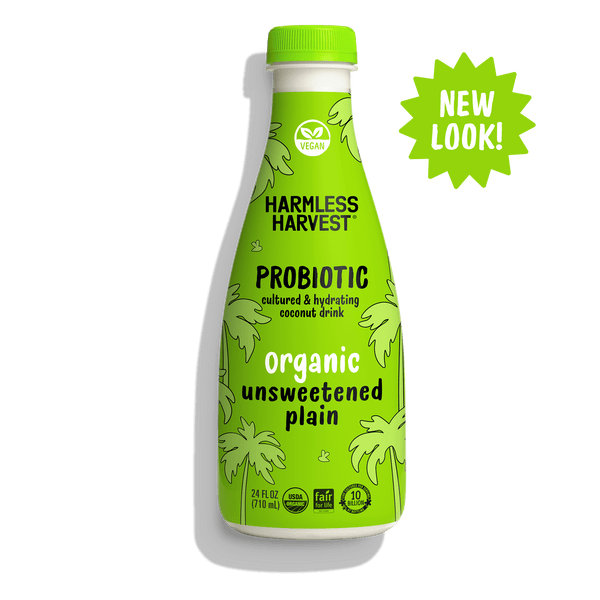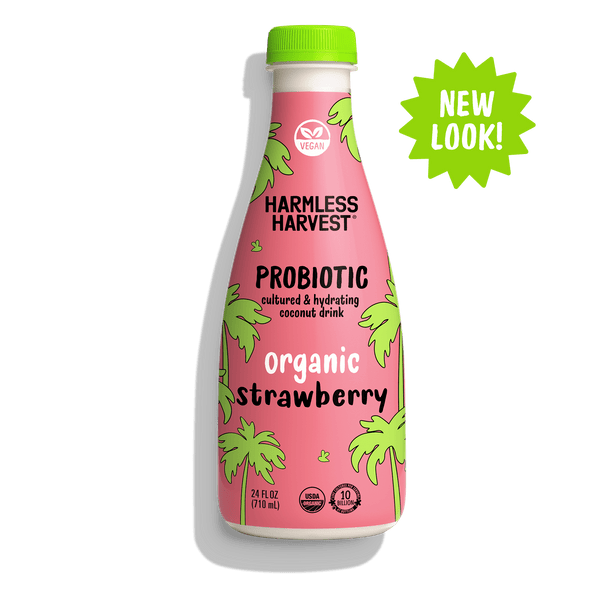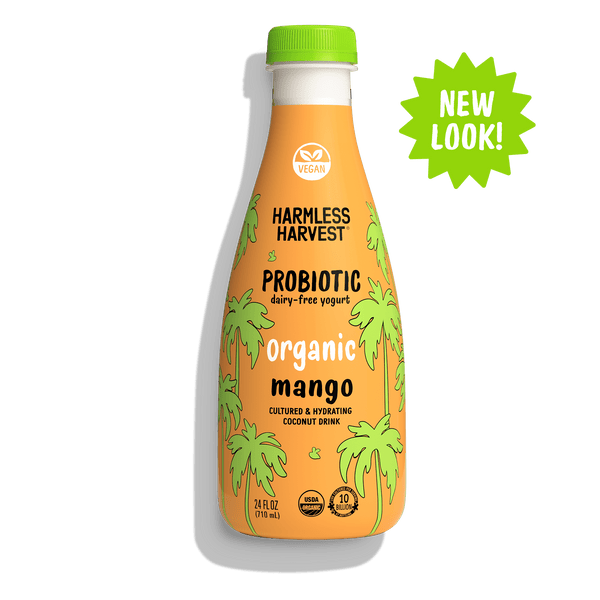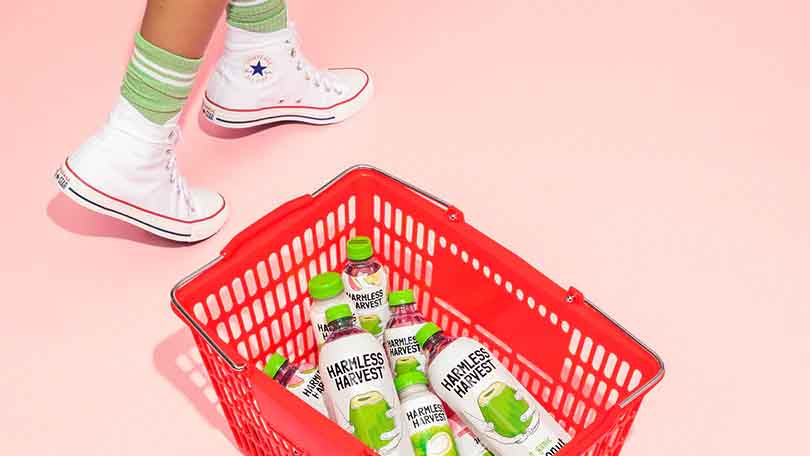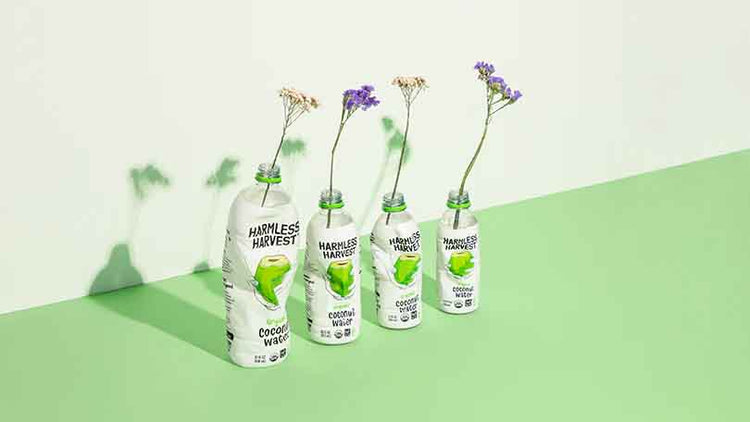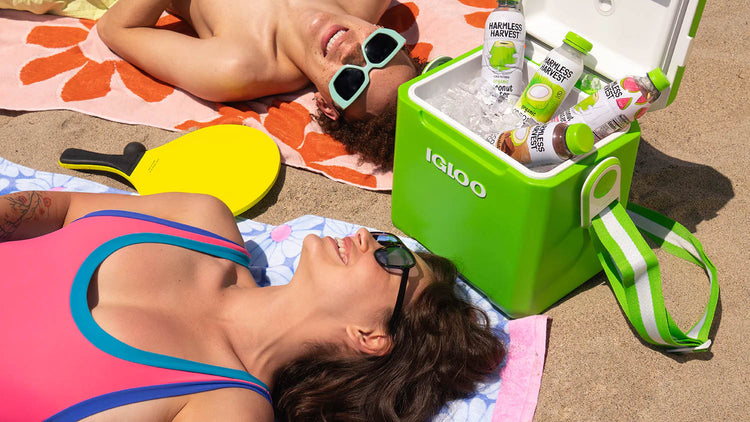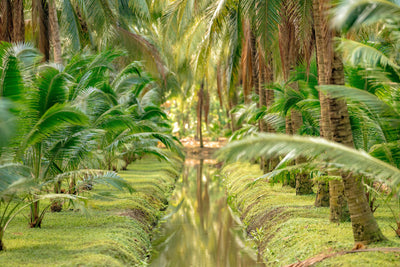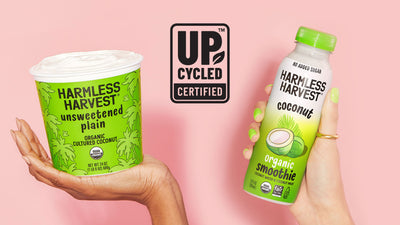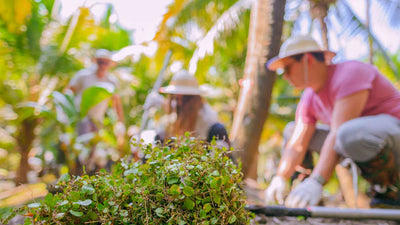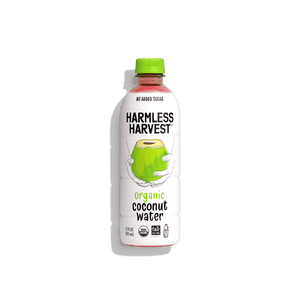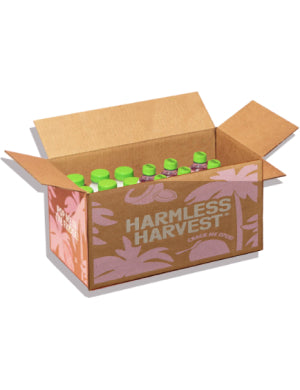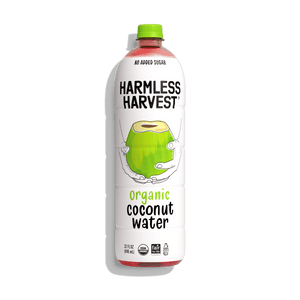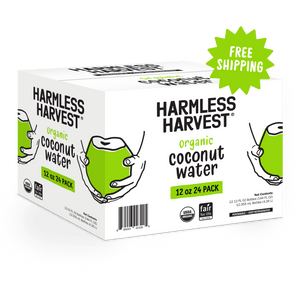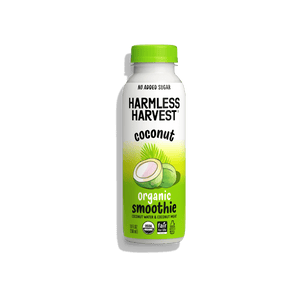So, you’re probably wondering why does Harmless Harvest use plastic bottles? I mean, isn’t plastic the enemy? Admittedly, I went into the process of identifying the most climate-friendly package with a different option in mind – plant-based plastic that is biodegradable. After meeting with numerous experts and reading plenty of scientific studies, it became clear that despite how good this option sounded, it was not the best.
What we learned is that – given current recycling/composting systems – 100% recycled PET plastic (rPET) is the best option. It has the lowest impact in fabrication and distribution AND diverts plastic from landfills and waterways – THE issue people have with plastic.
Regarding bio plastic, it turns out that it is easily confused with regular plastic (admittedly, I can’t visually tell the difference) and ends up in the traditional recycling stream, which makes recycling it not possible. And, currently only a very small minority of municipalities (2-3%) can actually compost it. Other materials (i.e. paper-based) were technically not feasible given our products.
What about aluminum cans, or glass bottles? These packaging options were easily ruled out given the high consumption of energy in fabrication and carbon impact during transportation. Plus, our proprietary multi-step micro-filtration system is simply incompatible with these packaging types.
Now, let’s talk about the label. Presently, the shrink wrap labels on our bottles are *not* recyclable (that’s why we say tear & toss the label, recycle the rest!). However, we have been working closely with our supplier to develop a label with washable water-soluble inks that would allow the label to be included in recycling. The goal is to implement this change in 2022!
If you prefer to shop for our coconut water at Costco, you’ve probably noticed our cases are wrapped in plastic there. We’re thrilled to let you know that we are working toward transitioning to cardboard case packaging made from recycled materials in the very near future. Stay tuned.
All that said, we will continue to search for opportunities to improve. Personally, I’m committed to continuous improvement and evaluating new materials at every step of our journey. We will continue to evaluate our options annually, remain transparent with our consumers, and view this as an ongoing dialogue as a way for us to keep getting better.
Ben Mand, Harmless Harvest CEO

